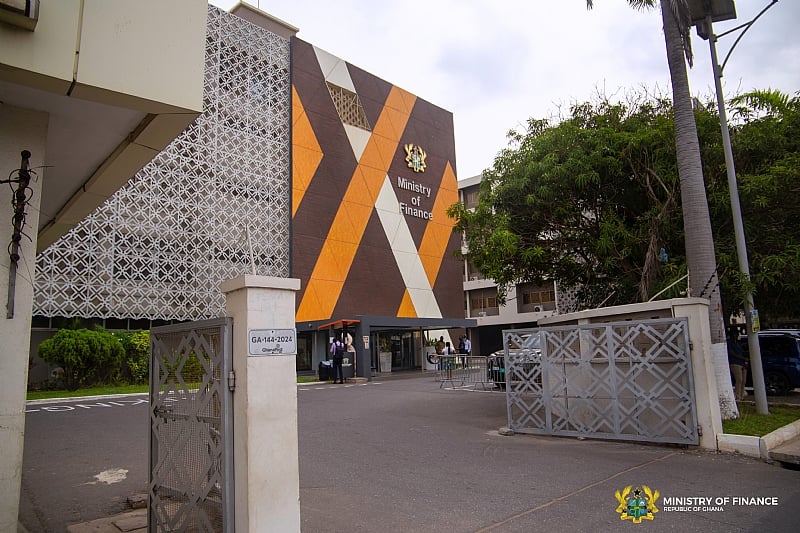Ghana’s exclusion from the United States Millennium Challenge Corporation (MCC) Fiscal Year 2026 candidate list underscores the significant repercussions of the nation’s ongoing debt crisis. The MCC, a U.S. foreign aid agency, employs a rigorous selection process based on a country’s performance across a range of indicators, including good governance, economic freedom, and investment in its citizens. Ghana’s failure to meet these criteria, specifically due to its debt default and subsequent inability to secure a restructuring agreement with creditors, has resulted in its ineligibility for MCC funding. This exclusion represents a setback for Ghana, a country that has previously benefitted significantly from MCC compacts aimed at bolstering its development efforts. The situation highlights the critical need for Ghana to address its debt vulnerabilities and restore fiscal stability to regain access to vital development assistance.
The MCC’s decision, outlined in its Fiscal Year 2026 Candidate Country Report, cites Section 7012 of the Fiscal Year 2025 State, Foreign Operations and Related Programs Appropriations Act as the legal basis for Ghana’s exclusion. This section prohibits U.S. foreign assistance to countries in debt arrears until a restructuring agreement is reached with creditors. While Ghana fulfills the income criteria for MCC eligibility, this legal restriction supersedes other considerations. The report distinguishes Ghana’s situation from other African nations excluded for reasons such as military coups (Burkina Faso, Mali, and Niger) or rule-of-law violations (Zimbabwe), emphasizing that Ghana’s ineligibility stems solely from its unresolved debt situation. This distinction underscores the importance of sound fiscal management and debt sustainability in maintaining access to international development partnerships.
Ghana’s past engagement with the MCC demonstrates the potential benefits of such partnerships. The country has been a recipient of two MCC compacts, totaling nearly US$1 billion in development assistance. The first compact, implemented between 2007 and 2012, focused on investments in agriculture, rural development, and transport infrastructure. Key achievements included the construction and rehabilitation of over 350 kilometers of roads, training programs for approximately 67,000 farmers, expansion of irrigation systems, and the construction of 250 classroom blocks. These investments aimed to boost agricultural productivity, improve rural livelihoods, and enhance access to markets and education.
The second compact, spanning from 2015 to 2020, targeted critical reforms within Ghana’s power sector. With a total value of US$498 million, the compact financed the construction of key power infrastructure, including the Pokuase and Kasoa bulk supply points in Accra, strengthening the electricity transmission network. Further investments were made in the modernization of the Electricity Company of Ghana’s systems and the installation of over 14,000 energy-efficient streetlights. The compact also included initiatives to promote women’s participation in the energy industry. However, the full potential of this compact was not realized due to the termination of a concession agreement related to electricity distribution reforms, resulting in a loss of US$190 million in funding. Despite this setback, the compact achieved significant progress in improving power infrastructure and promoting energy efficiency.
The current exclusion from the MCC program represents a significant loss for Ghana, depriving the country of crucial development funding at a time of economic vulnerability. The MCC’s rigorous selection process and emphasis on good governance principles send a clear message about the importance of responsible fiscal management and adherence to democratic norms. Ghana’s situation serves as a cautionary tale for other developing nations, highlighting the risks associated with unsustainable debt levels and the potential consequences for access to international development assistance.
The exclusion from the MCC program adds further pressure on Ghana to address its debt challenges decisively. Successful debt restructuring negotiations with creditors will be crucial not only for restoring macroeconomic stability but also for regaining eligibility for essential development partnerships. The MCC’s decision underscores the interconnectedness of economic stability, good governance, and access to development finance, highlighting the importance of these factors in achieving sustainable development goals. Moving forward, Ghana’s government will need to prioritize fiscal prudence and implement sound economic policies to restore investor confidence and regain access to vital development resources.














